P0236 – Turbocharger/Supercharger Boost Sensor “A” Circuit
OBD-II error code P0236 refers to a potential problem in the Turbocharger Boost Sensor (A) Circuit. This code is triggered when the Engine Control Module (ECM) detects an abnormal voltage level from the boost sensor circuit. The boost sensor, also known as the MAP (Manifold Absolute Pressure) sensor, plays a crucial role in monitoring the pressure of the air entering the engine. It provides essential data to the ECM, enabling it to adjust fuel injection and ignition timing for optimal engine performance. When the voltage signal from the boost sensor circuit deviates from the expected range, it can lead to poor engine operation and reduced efficiency.
The P0236 code can be indicative of a variety of issues. It might stem from:
- malfunctioning boost sensor;
- damaged wiring within the sensor circuit;
- problem with the ECM itself.
If the boost sensor is not functioning properly, the ECM may struggle to accurately adjust the air-fuel mixture, which can result in:
- reduced engine power
- compromised fuel efficiency
- increased emissions
It’s essential to address this code promptly to ensure your vehicle runs smoothly and efficiently. If ignored, the engine’s overall performance could be negatively impacted, potentially leading to further engine damage over time.
Fixes for OBD-II Code P0236
Fixing the OBD-II error code P0236 by yourself can be a relatively straightforward process, but it requires some basic tools and mechanical knowledge. Here’s a step-by-step guide on how to address this issue:
- Diagnostic Scan. Use an OBD-II scanner to retrieve the trouble codes and confirm that P0236 is the specific code that’s triggered. This will help you ensure that you’re addressing the correct issue.
- Inspect Wiring and Connections. Start by visually inspecting the wiring and connectors related to the boost sensor. Look for any visible signs of damage, such as frayed wires, corroded connectors, or loose connections. Make sure the wiring is properly connected and secured.
- Check the Boost Sensor. Locate the boost sensor on your vehicle. It’s usually mounted on the intake manifold or near the turbocharger. Disconnect the sensor and check its condition. Clean the sensor with an appropriate sensor cleaner if it’s dirty. If the sensor is damaged or faulty, consider replacing it.
- Test the Boost Sensor. Using a digital multimeter, test the boost sensor’s voltage output. Consult your vehicle’s service manual for the expected voltage range. If the voltage reading falls outside the expected range, it could indicate a faulty sensor that needs replacement.
- Inspect Vacuum Lines. Check the vacuum lines connected to the boost sensor for any cracks, leaks, or loose connections. A vacuum leak can affect the sensor’s readings and trigger the P0236 code.
- Reset the ECM. After addressing any issues, reset the ECM by disconnecting the battery for a few minutes or using an OBD-II scanner. This will clear the trouble code and allow you to see if the issue has been resolved.
Related DTCs to P0236
There are some codes that likely would have been shown along with the aforementioned code: P0033, P0046, P0234, P0235, P0237, P0238, P0239, P0240, P0241, P0242, P0243, P0244, P0245, P0246, P0247, P0248, P0249, P0250, P0299, P2563, P2564, P2565.
FAQs
How much does it cost to fix the code P0236?
Considering these factors, the total average cost to fix the error code P0236 could range from $100 to $500 or more, depending on the circumstances. To get a more accurate estimate, it’s recommended to obtain quotes from local mechanics or repair shops.
Here’s a general breakdown of potential costs:
Parts. If the boost sensor needs replacement, the cost of the sensor itself can range from $50 to $150 or more, depending on the brand and quality. Note, other components, such as wiring or vacuum lines, may also need replacement.
Labor. The rates vary widely, but you can expect to pay anywhere from $50 to $150 per hour for labor if you address repair to the mechanic.
Diagnostic Fee. If you’re unsure about the issue and need a professional diagnosis, some mechanics charge a diagnostic fee to identify the problem. This fee can range from $50 to $150, depending on the shop.
Additional Repairs. In some cases, issues related to the boost sensor may require additional repairs, such as fixing damaged wiring or addressing vacuum leaks. The cost for these repairs will depend on the specific parts and labor involved.
Can I continue driving with the P0236 code?
Driving with the OBD-II code P0236 (Turbocharger Boost Sensor A Circuit Range/Performance) can be risky, and it’s generally not recommended. This code indicates a potential problem with the boost pressure sensor or circuit in your vehicle’s turbocharging system.
How is the code P0236 serious?
The code indicates that there is a problem with the boost pressure sensor circuit in the vehicle’s turbocharging system. It is considered to be a moderately serious issue. While it may not pose an immediate danger, it should not be ignored.
We do an efforts to find, research and recommend the best products. So, we may receive commissions from purchases that you make after following the links in our product reviews.


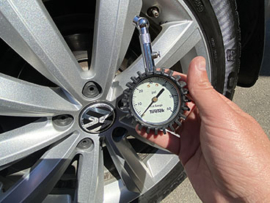
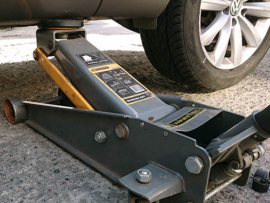
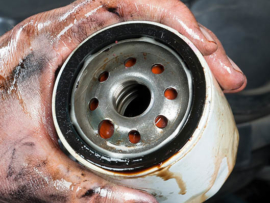
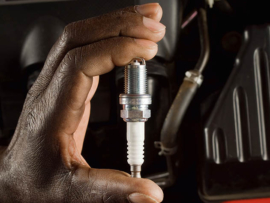
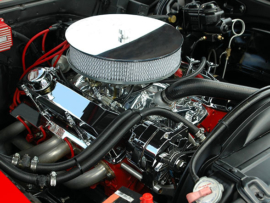
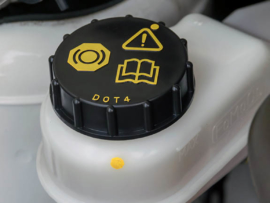
Leave A Comment